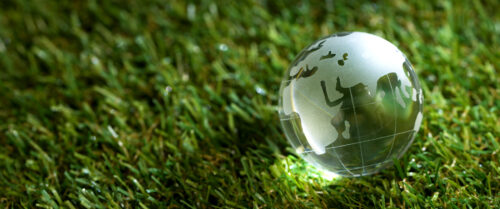Overview
To engage students in complex environmental issues using a hands on simplified approach: Two non-profits, Green Education Foundation (GEF) and Coastal Habitat Education Environmental Restoration (CHEER) have partnered together to bring “Green Education” directly to your students. Our goal is to leave the students with the “awareness” they need to become “recycling ambassadors” and share what they have learned with their families and others in their communities. Inspiring global sustainability!
Part 1: Learning
GEF and CHEER will schedule a date to come by your school to teach students about the importance of recycling and sustainability. CHEER’s mission is to restore coastal ecosystems by cleaning up, restoring and preserving our waterways. In order to keep our rivers continually clean and garbage free, we will teach our students and communities about the dangers of dumping in our water-stream. CHEER will be bringing its “Coastal Watershed Garbage Museum” to educate the students about the benefits of recycling and the dangers of dumping. This ties directly with what GEF will teach our students because the items dumped in our rivers all could have been recycled rather than dumped. GEF’s mission is to divert waste from our landfills and garbage-stream. We will teach the students about recycling and up-cycling. Along with CHEERS’s Garbage Museum, GEF will be setting up a booth which will showcase our up-cycled recycling station and how the items are processed and reused to benefit the environment, benefit poorer communities in third world countries. Most importantly build a pattern of sustainable behavior that will lead to cleaner rivers, cleaner air and more natural resources left for future generations.
Education is the Most Powerful Weapon to Change the World | GEF Events Video
Part 2: Participation & Rewards
After the school showcase event where the students are taught the importance of recycling, GEF will be sending the students home with a “green assignment” that will both benefit their school and start the students down a lifestyle pattern of recycling rather than dumping. The students will be asked to go home and get their parents and neighbors involved in cleaning out their closets, garages and kitchens so they can recycle all the unwanted items that will eventually end up being dumped if they are not recycled properly. Use the “Write To Us” form below to set up an event at your school.
The students will go home with a flyer outlining the items that can be recycled as well as the date, time and drop off location to bring the items. For each bag of items the students recycle, the school will receive 2 dollars. Raising money for their school will illustrate to the students that recycling can lead to positive economic effects as well as environmental. This type of participatory community recycling is what leads to lifestyle and behavioral changes. The Goal of CHEER and GEF is to engage our students in environmental activities that show actual positive effects from their actions.
Part 3: Reinforcment & Rewards
GEF will introduce our “Backpack Exchange Program” to the students at the end of each school year. To continue engaging our students in recycling and to reward them for their participation, GEF will be giving out FREE Backpacks and School Supplies during the summer in exchange for unwanted recycled items. This continues to reinforce recycling habits and plants the seeds of awareness that build strong positive environmental beliefs.
‣ Reuse ‣ Rethink ‣ Recycle
With the amounts of garbage that is making contact with our oceans reaching upwards of *10 million tons per year, it’s long past time to start thinking of new ideas; and one simple idea that we here at the Green Education Foundation believe in is REUSE! We constantly encourage people to think of reusing items rather then disposing and replacing them. Our main focus of encouraging reuse is our idea of the NDRS or “Neighborhood Donation & Recycling Station”. With the placement of these **UPCYCLED abandoned shipping containers, we give communities the opportunity to donate their small to medium household items at locations that are not only convenient but available 24 hrs. See all the features of our NDRS program by clicking on the link.
*National Geographic – 8 Million Tons of Plastic dumped in ocean each year. | **Upcycling – Taking an item and giving it an alternate use other than its original purpose. Examples – Shipping Container converted to our NDRS units or Caprisun Containers reused as lunch boxes.
WORKSHOPS / FIELDTRIPS
Interactive workshops, community projects, and field trips would compliment the green educational programming. Studies show that to make an effective impact on children it is important to engage all their senses. Field trips to local landfills, recycling centers, manufacturers of electric vehicles or other green products will help connect the dots. Also community involvement with small but engaging activities such as book swapping events, recycling drives, etc… will help children feel a sense of accomplishment that transcends simply reading about the environmental problems and the possible solutions.
To help us accomplish this we are enlisting the aid of educators and environmental leaders who will be tasked to create a synergistic program that makes the experience fun and educational. Of course we will need the help of volunteers to implement these programs. These are our Green Leaders.
GREEN LEADERS
To reach a wider audience, volunteers are essential. Green Education Foundation is enlisting the aid of volunteers across the country to become “Green Leaders”. Volunteers are teachers, parents, college students, or environmental enthusiasts. Any one who understands the importance of our need to act now can help us with our mission to save the future by seeding the minds of today’s younger generation. What’s more rewarding than being part of a grass roots movement that will no doubt effect positive change in the future of our planet.

